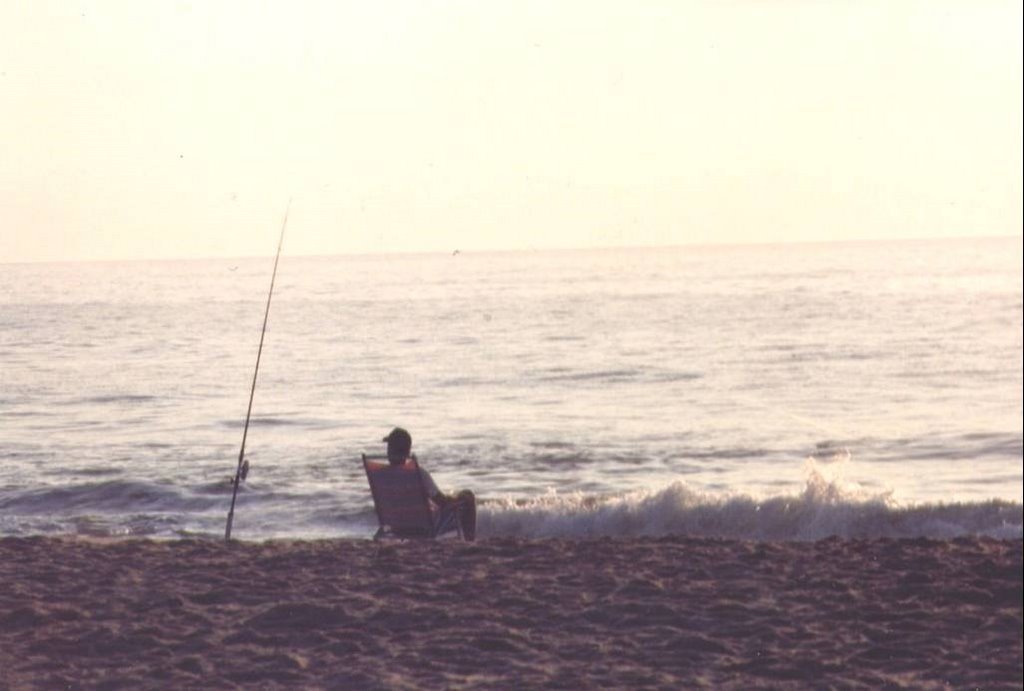About F3
All sorts of outside elements have muddied the waters of our world. Pollution, garbage, and industrial
run-off have made it a lot more difficult for us to see what's below the surface. Similar elements have
muddied the more figurative waters of our souls. There's no clear way to see through the slime to the
miraculous life beneath without just diving in and exploring. So ... consider this a safe place to delve
the murky depths and discover the unique treasures held in store for you.
Commenting Policy
The whole bonus of blogs is the interactivity, so by all means ... comment away! Just be aware that I
reserve the right to edit out any identifying information and anything else that doesn't seem to belong.
And really, I've only got one rule ...Play nice!!!

This Template is generated via PsycHo and is Licensed.
Apr 1, 2007
Blogging the Monastic Triduum ~ Prelude to Holy Week
Triduum ~ Latin for "Three Days." Within the context of the Catholic Church, these three days leading up to Easter are the most high holy days within the liturgical season.
I'll try to explain what I'm talking about as I go along, as best as I can, but I'm not really sure what aspects are "common knowledge" among other branches of Christianity, or even for my not-so-religious readers, for that matter. So, if I confuse you, or there's something you're wondering, just leave a question in the comment box and I'll try to clarify myself.
Officially, Lent ended Wednesday night. Ash Wednesday kicked off the season of Lent, a time to renew our focus on God and the things that we should focus on all the time, but since we're human, well ... at least let's make a special effort during these six weeks. After all, think about what Jesus did for you; the least we can do is cut back on the chocolate for a couple weeks, right?
Within the liturgical celebrations, Lent takes on a rather solemn tone. During these six weeks, the Gloria is not sung, nor are we to use the wordalleluia (my brother got in trouble with a second-grader once as he was running a practice for children's choir: "Mr. Chris, we're not allowed to say the A-word during Lent!" So he had to explain that if you're practicing music for Easter, then it was OK to say it!). Here at the monastery, we simplify down the music we use — no brass or other fancy instruments, no music at the Offertory or recessional — and simplified decorations of perhaps a bowl of ashes or crown of thorns and nails. Our Liturgy of the Hours is different from Ordinary Time, with special antiphons before each of the psalms, and a different cycle of psalms to be recited. At the monastery, we also have one evening a week with a simple meal and silence after the meal to help provide a little additional space for reflection.
Then this past Sunday we celebrated Palm Sunday, the beginning of Holy Week. There was a bit of discussion over among the RevGals as to whether they were going to celebrate Palm Sunday or Passion Sunday. With us Catholics, we do both. Here at the monastery, we begin by gathering out in the courtyard for an opening prayer, reading of the Entry-into-Jerusalem Gospel, and a blessing of the palms. Then we processed in to the Church, where the liturgy resumed, using the Passion from Mark. Generally, the reading of the Passion is done by three people: one is a narrator, one reads the lines of Jesus, and one reads the lines of all the other people; the congregation also joins in for certain "crowd" lines. While it is Lent, it's a very triumphant day, so we had a brass-organ-timpani processional as we came into church. Other than that, though, it's primarily a "normal" Mass.
I'll try to explain what I'm talking about as I go along, as best as I can, but I'm not really sure what aspects are "common knowledge" among other branches of Christianity, or even for my not-so-religious readers, for that matter. So, if I confuse you, or there's something you're wondering, just leave a question in the comment box and I'll try to clarify myself.
Officially, Lent ended Wednesday night. Ash Wednesday kicked off the season of Lent, a time to renew our focus on God and the things that we should focus on all the time, but since we're human, well ... at least let's make a special effort during these six weeks. After all, think about what Jesus did for you; the least we can do is cut back on the chocolate for a couple weeks, right?
Within the liturgical celebrations, Lent takes on a rather solemn tone. During these six weeks, the Gloria is not sung, nor are we to use the word
Then this past Sunday we celebrated Palm Sunday, the beginning of Holy Week. There was a bit of discussion over among the RevGals as to whether they were going to celebrate Palm Sunday or Passion Sunday. With us Catholics, we do both. Here at the monastery, we begin by gathering out in the courtyard for an opening prayer, reading of the Entry-into-Jerusalem Gospel, and a blessing of the palms. Then we processed in to the Church, where the liturgy resumed, using the Passion from Mark. Generally, the reading of the Passion is done by three people: one is a narrator, one reads the lines of Jesus, and one reads the lines of all the other people; the congregation also joins in for certain "crowd" lines. While it is Lent, it's a very triumphant day, so we had a brass-organ-timpani processional as we came into church. Other than that, though, it's primarily a "normal" Mass.
0 Comments:


